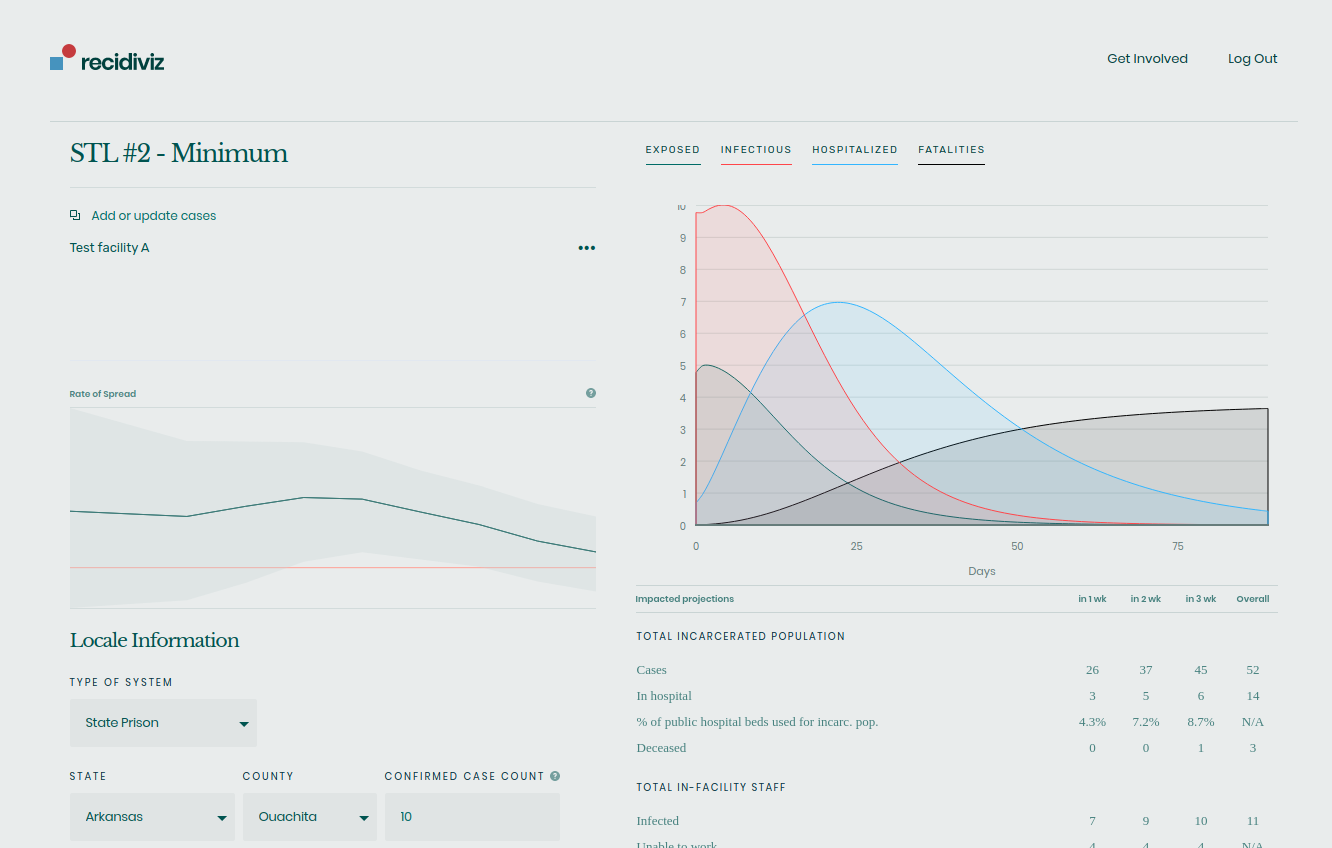Needs
The U.S. is facing an over-incarceration problem, with 2.1 million people in jail or prison prior to COVID-19, far outpacing population growth and crime. To accelerate reform efforts, and to reduce recidivism – or a person’s tendency to reoffend – nonprofit technology company Recidiviz built an open data platform to help criminal justice decision-makers identify effective strategies for reducing incarceration. Meanwhile, currently incarcerated people have been among the hardest hit by the COVID-19 pandemic. The team at Recidiviz anticipated that jails and prisons could fall victim to rapid spread of COVID, which could have adverse effects on the surrounding community.
Following its model of providing data-based tools to criminal justice decision-makers, the Recidiviz team pivoted to also projecting the possible effects of the COVID-19 pandemic. In early 2020, the team released a model for COVID-19 outbreaks in prisons and jails to help state and local decision-makers predict and limit the effects of the pandemic on incarcerated populations, prison staff, and surrounding communities. Prior to the COVID-19 pandemic, Recidiviz tools were used in four states that represented about 7 percent of the national incarcerated population. The COVID-19 model was used in 34 states. To rapidly scale and have a broader, more streamlined reach during the pandemic, the Recidiviz team needed tech support from senior level software engineers who could jump in and help build-up the tools to meet demand.
Our approach
A team of pro bono technologists from U.S. Digital Response partnered with Recidiviz, along with other contractors and volunteers, to help turn raw data into a model and web app that could be easily updated and shared with decision-makers across the country. The team of engineers, designers and product developers helped migrate the original Excel file to a beta web app that features outbreak modeling, real-time rate of spread and impact analysis. The shared data on the web app is informed daily by real case numbers and deaths counts for each county and state, making it simpler to quickly share the updated information with users. USDR’s technologists used data visualizations to show R(t), the rate of transmission of COVID, in different facilities and enabled scenario comparisons for state-level correctional facilities to predict how their actions will improve resource availability or how it changes R(t).
“Everyone at USDR was nimble and collaborative even as we were building out processes on the fly, like coordinating through daily standups and prioritizing with GitHub project boards. Despite it being a chaotic time and far from a traditional development process, everyone was ready to dive in and help out — it was a huge team effort.”
Serena Chang
Product Manager
Recidiviz
Impact
The web app, composed of the COVID models and toolkit, was designed to support decisions regarding safe decarceration to reduce overcrowding — an effective and safe way of preventing community spread of COVID-19 in prisons, jails and surrounding communities. The model helped government agencies understand and make a strong case for reducing the number of people in prison, and sending them back healthy to their families and children. Thirty-four states used the model to inform their decarceration efforts, and states that used the tool decarcerated at 3.6x the rate of states that didn’t. These states ended up recommending more than 36,000 early releases during the pandemic.

